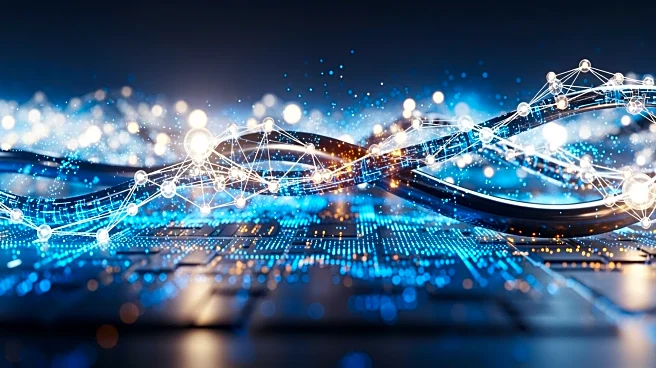What's Happening?
Organizations are increasingly adopting hybrid and multi-cloud architectures, which has led to the erosion of boundaries between network and security operations. This development has exposed critical visibility
gaps, prompting enterprise security leaders to integrate DDI (DNS, DHCP, and IP address management) with artificial intelligence (AI) platforms. The integration aims to transform reactive security postures into predictive, autonomous defense mechanisms. By analyzing DDI data through AI engines, organizations can enhance contextual threat detection and machine-speed response capabilities. This fusion also enables AI-powered breach and attack simulations, providing both defensive and offensive capabilities.
Why It's Important?
The integration of DDI with AI is significant as it addresses the growing complexity of modern enterprise environments, which include datacenters, public clouds, remote users, and IoT devices. Traditional siloed security operations are no longer sufficient to protect against sophisticated, automated threats. By bridging the gap between network operations and security, organizations can better defend against adversaries who exploit these vulnerabilities. This strategic shift is crucial for maintaining cyber resilience in an era where human oversight alone cannot manage the complexity of digital ecosystems.
What's Next?
As organizations continue to adopt DDI-AI integration, they may experience improved cyber resilience and reduced risk of breaches. Security leaders are likely to focus on further refining these integrations to enhance predictive capabilities and automate responses to emerging threats. Additionally, there may be increased collaboration between network and security teams to ensure seamless operations and comprehensive threat management. The ongoing evolution of AI technologies will likely drive further innovations in cybersecurity strategies.
Beyond the Headlines
The integration of DDI and AI not only enhances security but also raises ethical and privacy concerns. As AI systems become more autonomous, organizations must ensure that they adhere to ethical guidelines and protect user privacy. The reliance on AI for security operations may also lead to discussions about the role of human oversight and the potential risks of over-automation in critical security functions.








